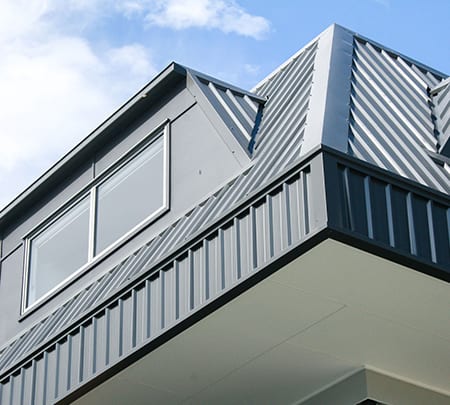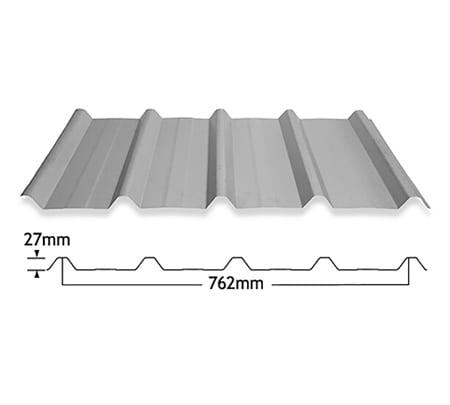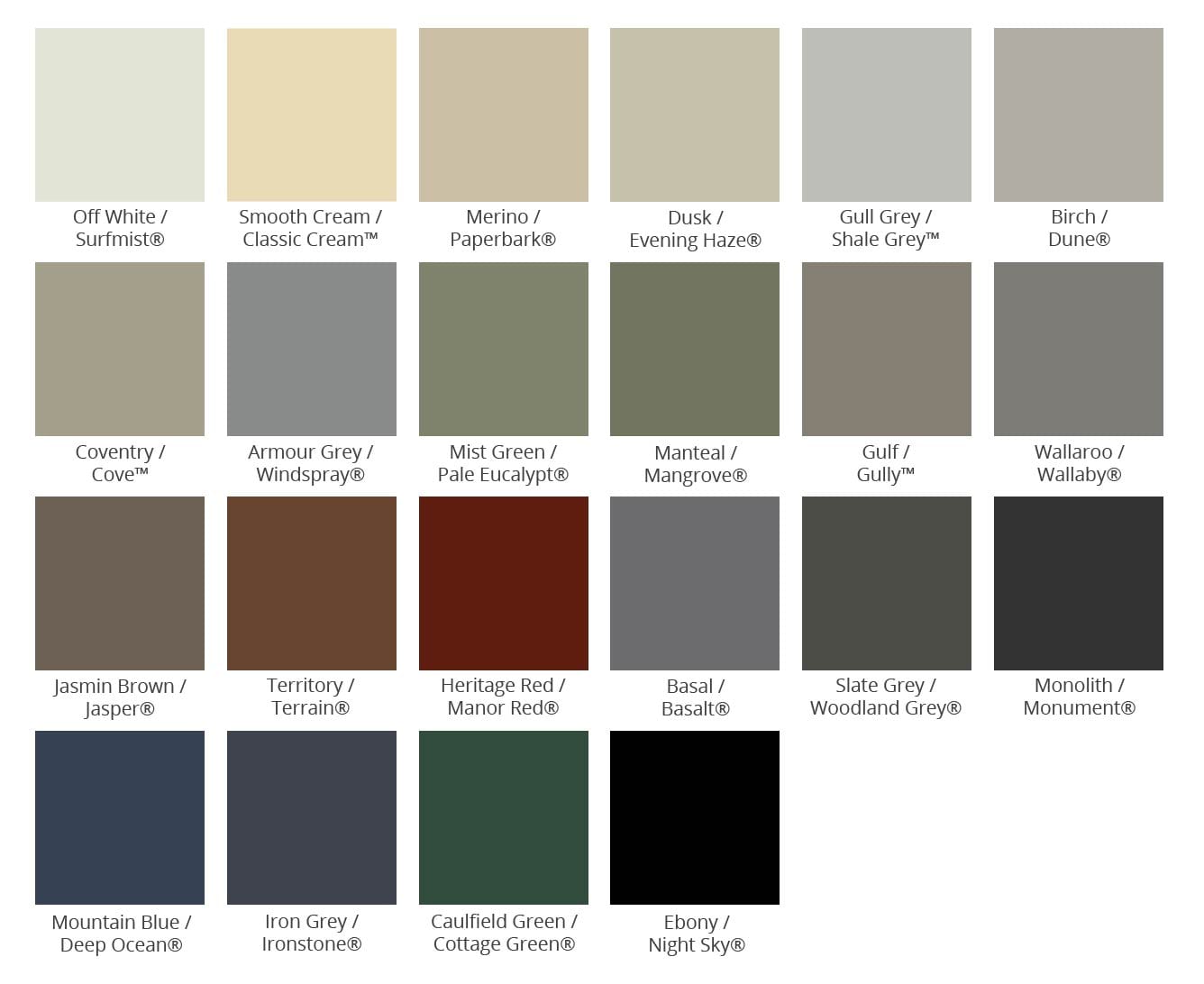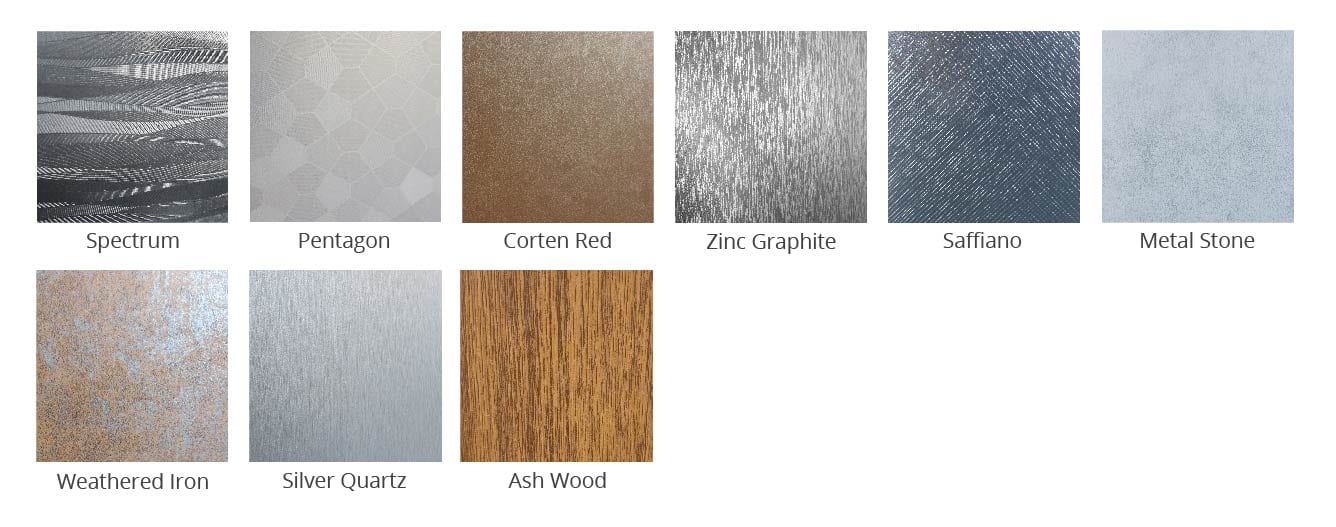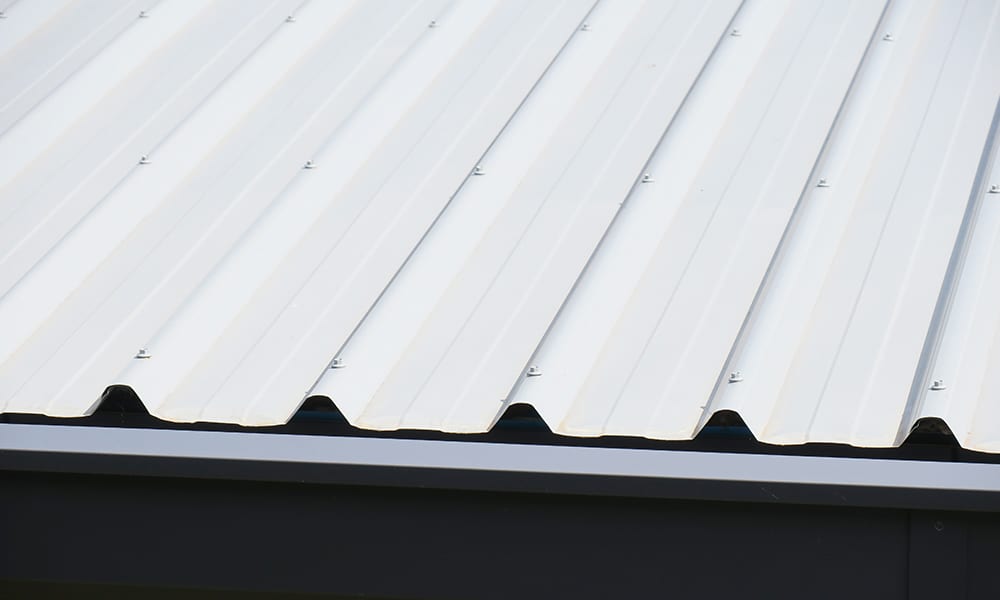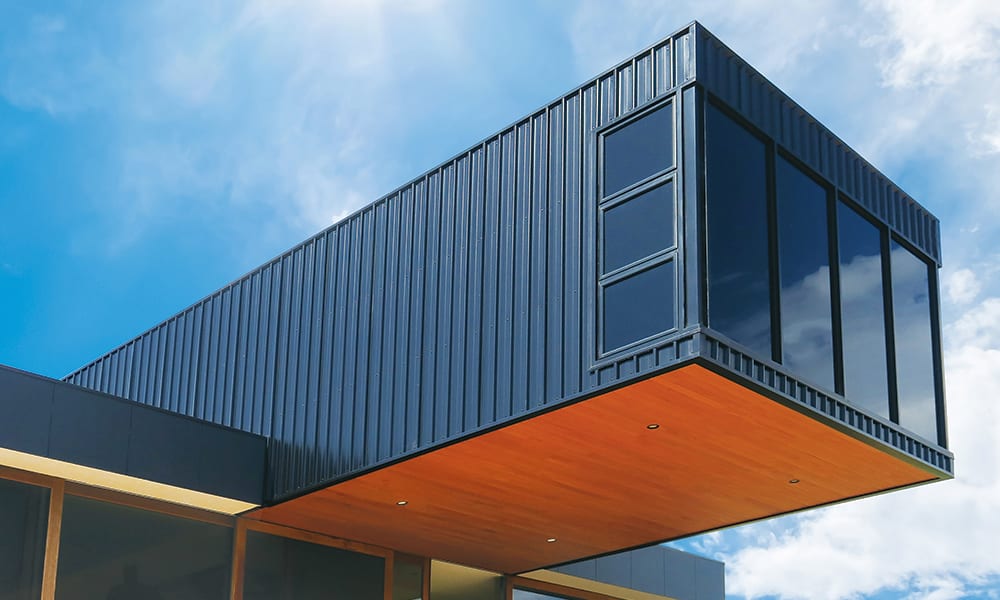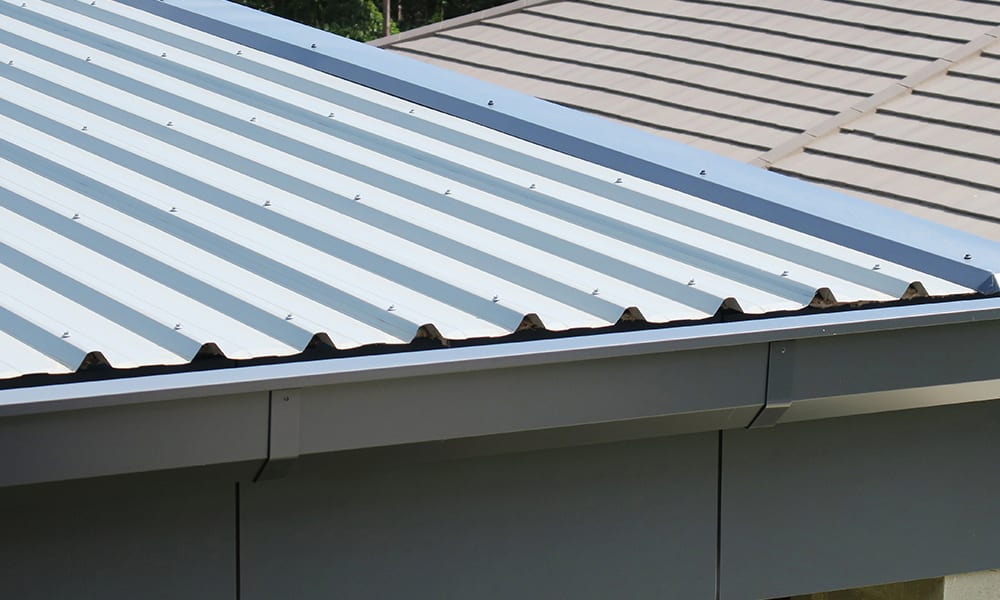Zincalume® –
Aluminium / Zinc / Magnesium alloy coated steel coil, 125grams/m² coating weight.
Metallic coating conforms to AS1397:2011. Suitable for ISO9223:2012 Atmospheric
Classifications C1 – C3
Colorbond® –
Pre-painted Aluminium / Magnesium / Zinc alloy coated steel coil, 100grams/m² coating
weight. Metallic coating conforms to AS1397:2011, pre-painted finish conforms to
AS/NZS2728:2013. Suitable for ISO9223:2012 Atmospheric Classifications C1 – C3
MagnaFlow™ –
Pre-painted Zinc / Aluminium / Magnesium alloy coated steel coil, 240grams/m² coating
weight. Metallic coating conforms to AS1397:2011, pre-painted finish conforms to
AS/NZS2728:2013. Suitable for ISO9223:2012 Atmospheric Classifications C1 – C4
|
Sheeting max (kg/m2 of roof area) |
|
|
Zincalume® |
Corrugated® |
| 0.42mm BMT |
4.28 |
4.35 |
| 0.48mm BMT |
4.86 |
4.93 |
Ezi-Batten Corrugated sheeting has been assessed for suitability for use in non-cyclonic
roof and wall cladding applications in accordance to AS1562.1:2018, applicable to both
residential and commercial applications. Metallic coated materials comply with
AS1397:2011 and pre-painted materials comply with AS/NZS2728:2013. Installation of
product shall be in compliance with AS1562.1:2018 and SA HB-39:2015, National
Construction Code (NCC) and relevant QSM Technical Bulletins.
Ezi-Batten Corrugated sheeting will give excellent durability in almost all locations. It
is however important to choose the correct coating for each environment as shown in the
table below. Durability recommendations do vary based on the application of the product,
in roofing or walling installations. Please read the tables below carefully.
Roof Sheeting – Site Exposure Condition
| Suitability of coating type |
Mild
(ISO Category 1-2) |
Moderate
(ISO Category 2) |
Marine
(ISO Category 3) |
Severe Marine
(ISO Category 4) |
Wall cladding – distance from marine environment |
| Zincalume® |
Yes |
Yes |
No |
No |
>1km |
| Zincalume® |
Yes |
Yes |
No |
No |
>1km |
| Zincalume® |
Yes |
Yes |
No |
No |
>1km |
* Severe marine begins 100 – 400m from the coast and may extend inland depending on
local conditions.
These are general guidelines only. Building location, design and aspect need to be
taken into account. To ensure warranty will be given, check with Ezi-Batten before
using in these areas.
Due diligence needs to be applied to ensure that all materials are compatible. Corrosion may occur when incompatible materials are either in direct contact, immersed in a common electrolyte, receive inert drainage or drainage from incompatible materials.
As a general rule for metallic coated and pre-painted materials, always avoid direct contact with copper, lead, tantalised timber, Monel, uncoated steel, stainless steel and concrete/mortar.
Drainage from inert materials must not flow onto galvanised material. Inert materials include glass, aluminium, glazed ceramic tiles, pre-painted steel and metallic coated steel.
More highly corrosive environments require additional care, the effects of marine and industrial environments can extend long distances from the source and create unique corrosive challenges.
Ezi-Batten are here to assist, speak to your representative for further assistance.
- *
Roofing and cladding materials that are not exposed to rainfall should be washed
down at least once every six months (more often in marine environments) to remove
build-up of corrosive elements.
- *
Prior to installation, materials must be kept clean and dry. Ensure that sheeting
packs are covered, air flow is adequate to eliminate condensation and water is not
allowed to pond. Should materials get wet, sheeting must be separated and thoroughly
dried.
- *
Sheeting should be handled with care to both avoid installer injury and damage to
the product. Cutting of sheets must only be done with tin snips, shears or
cold-cutting saw, so as to avoid the damage caused by abrasive cutting methods (i.e
angle grinder).
* Roofing and cladding materials that are not exposed to rainfall should be washed down at least once every six months (more often in marine environments) to remove build-up of corrosive elements.
* Prior to installation, materials must be kept clean and dry. Ensure that sheeting packs are covered, air flow is adequate to eliminate condensation and water is not allowed to pond. Should materials get wet, sheeting must be separated and thoroughly dried.
* Sheeting should be handled with care to both avoid installer injury and damage to the product. Cutting of sheets must only be done with tin snips, shears or cold-cutting saw, so as to avoid the damage caused by abrasive cutting methods (i.e angle grinder).
